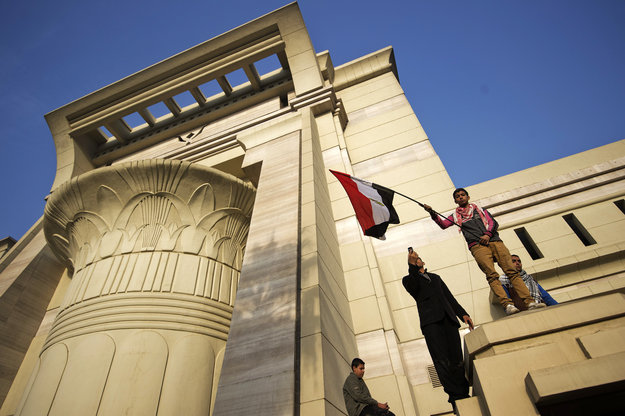BEIRUT: Saad Hariri announced on Thursday that he was stepping down as Lebanon s prime minister-designate after the Hezbollah-led opposition rejected a team he proposed earlier this week.
Given that my commitment to forming a government of national unity has run up against difficulties that everyone now knows about, I announce that I have informed the president of the republic that I have abandoned trying to form a government, he told journalists in Beirut.
I hope that this decision will be in the interests of Lebanon and will permit a relaunch of dialogue.
The announcement comes after more than two months of fruitless efforts to form a government following June elections. The rejection of Hariri s proposed team sparked fears of new political crisis in a country where bickering led to deadly fighting only last year.
On Monday, Hariri proposed a 30-seat coalition cabinet to President Michel Sleiman, more than three months after his alliance won a general election.
Hezbollah chief Hassan Nasrallah quickly criticized him for proposing a line-up that he said would only complicate the situation in Lebanon.
I do not believe this way of doing things will lift Lebanon from the crisis over the formation of the new government, Nasrallah said. It will make the problem more complicated.
The Hezbollah chief said the minority opposition would stand up to this inadequate measure, and in complete solidarity, although he did not elaborate on its next move.
Hariri, the son of assassinated ex-premier Rafiq Hariri and head of the Western-backed parliamentary majority, was named premier on June 27.
Tough negotiations led to a deal on the number of ministers each political camp would have in the cabinet, with 15 going to Hariri s alliance, 10 to the opposition and the president appointing the remaining five.
However, the various factions have been unable to agree on just who gets what ministries.
On Tuesday, pro-opposition daily As-Safir, ran a headline saying: The imposed government fails politically, Hariri to resign.
The prime minister-designate did it, perhaps after having been given the green light from countries abroad, and threw the ball of fire – the cabinet formation – into the hands of the president, As-Safir said.
Naming ministers on behalf of the opposition was a step too far, As-Safir said.
A political crisis erupted in 2006 after all Shia ministers resigned from the cabinet. It degenerated in May 2008 when sectarian fighting broke out in Beirut, in the worst bloodshed since Lebanon s 1975-1990 civil war.
The crisis was resolved the same month when Qatar brokered a deal for the formation of a national unity government.
The press speculated on Thursday that if Hariri did renounce efforts to form a government, Sleiman might reappoint him after first consulting with MPs.
Hariri and his allies won a healthy majority of 71 seats in the 128-member parliament, while the Hezbollah camp got 57.


